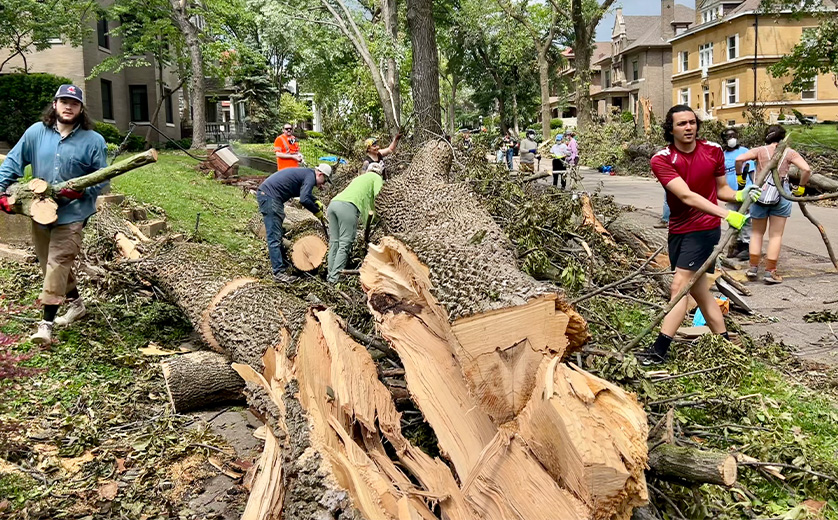In the wake of a devastating tornado that struck the St. Louis area on Friday, May 16, students, alumni, and faculty from WashU’s Brown School have mobilized to assist recovery efforts in one of the city’s hardest-hit neighborhoods.
The tornado cut a 23-mile-long path, damaging or destroying an estimated 5,000 structures, according to St. Louis Mayor Cara Spencer. The storm claimed five lives and injured dozens more, with the greatest impact felt in North St. Louis—a historically disinvested and predominantly Black community.
On May 20, a team of volunteers from the Brown School, including 12 students, two alumni, and four faculty members, joined local relief efforts at the People’s Response Hub, a recovery initiative launched by Action St. Louis and For the Culture STL and based at the YMCA O’Fallon Park Rec Complex. The volunteers were organized by Molly Metzger, PhD, a senior lecturer at the Brown School.
Among those who answered the call was Ethan Fudge, a Master of Social Work student who had already been volunteering in the area since the day after the tornado.
“I won’t mince words. It’s awful. It’s terrible,” Fudge said, describing the destruction he encountered. “You saw progressively worse and worse conditions heading north. Cars with tree limbs through them, homes with the facades blown off, and churches collapsed. People’s histories and lives are gone.”
Fudge has been doing whatever is needed: cutting fallen trees, clearing debris off streets, sorting donations, distributing supplies, and canvassing neighborhoods to assess needs.
“Social work is a caring profession, a helping profession, a service profession. It is our duty to help when disasters arise and to the extent that we can, and that we must, we are ethically obligated to do so. ”
Ethan Fudge
Fudge said his drive to help comes from both personal conviction and professional responsibility.
“This is our ethical duty as social workers—service, social justice, the dignity and worth of people,” they said. “Social work is a caring profession, a helping profession, a service profession. It is our duty to help when disasters arise and to the extent that we can, and that we must, we are ethically obligated to do so.”
Olivia Buckley, a dual Master of Social Work and Master of Public Health student, also joined the effort and described the experience as deeply impactful.
“It’s inspiring to see how groups have organized and utilized their skills to help so many people so quickly. Every single day it’s kind of remarkable how much they’re able to get done,” she said.
On Tuesday, the Brown School volunteers were assigned to a neighborhood to assist with tree removal and debris clean-up. Wearing protective gear and wielding tree trimmers and a few chainsaws, the team worked to clear streets and yards to make the area safer for residents.
Buckley said the experience underscored the importance of incorporating ecological stewardship and disaster preparedness into social work education.
“Unfortunately, climate change is happening, and this isn’t going to go away,” she said.
Buckley emphasized that disaster recovery work comes in many forms and requires a wide range of contributions.
“There really is a place for everybody out here. You don’t have to be out in the community clearing things and doing more of the physical taxing work. We also need people to help organize distributions, fundraise, and stay committed for the long haul,” she said. “I am encouraging folks to plug in where they can and where they feel comfortable because it’s an important cause and we are a huge part of this.”
Metzger expressed her gratitude for the community organizing efforts that made the day possible.
“I am so grateful to the students and colleagues who were able to come out—and I’m in awe of the community organizers with Action St. Louis, For the Culture STL, and their partners for bringing us all together in this moment,” she said. “Looking ahead, our task will be figuring out how to renew and sustain the Brown School’s commitment to North St. Louis.”
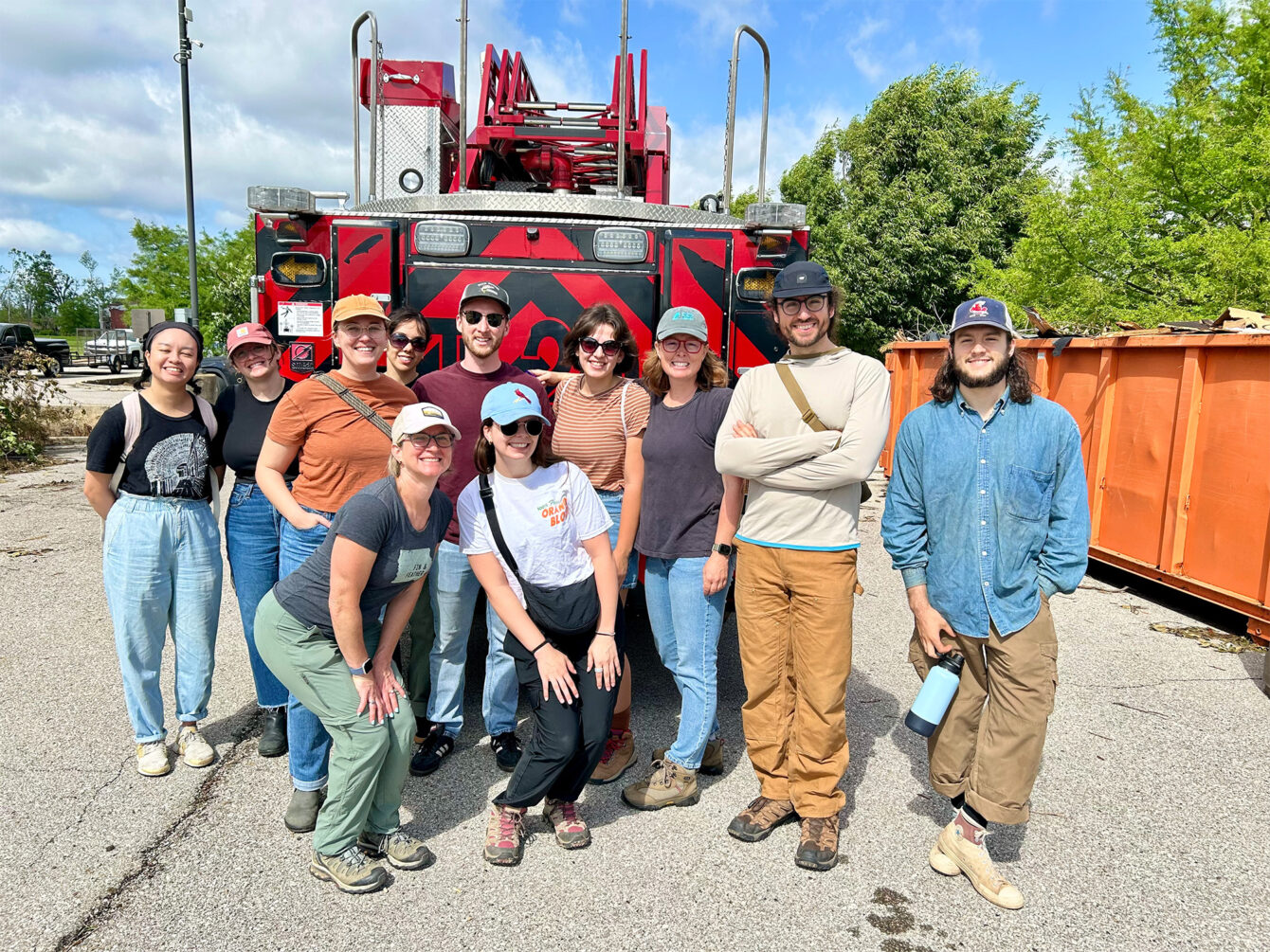
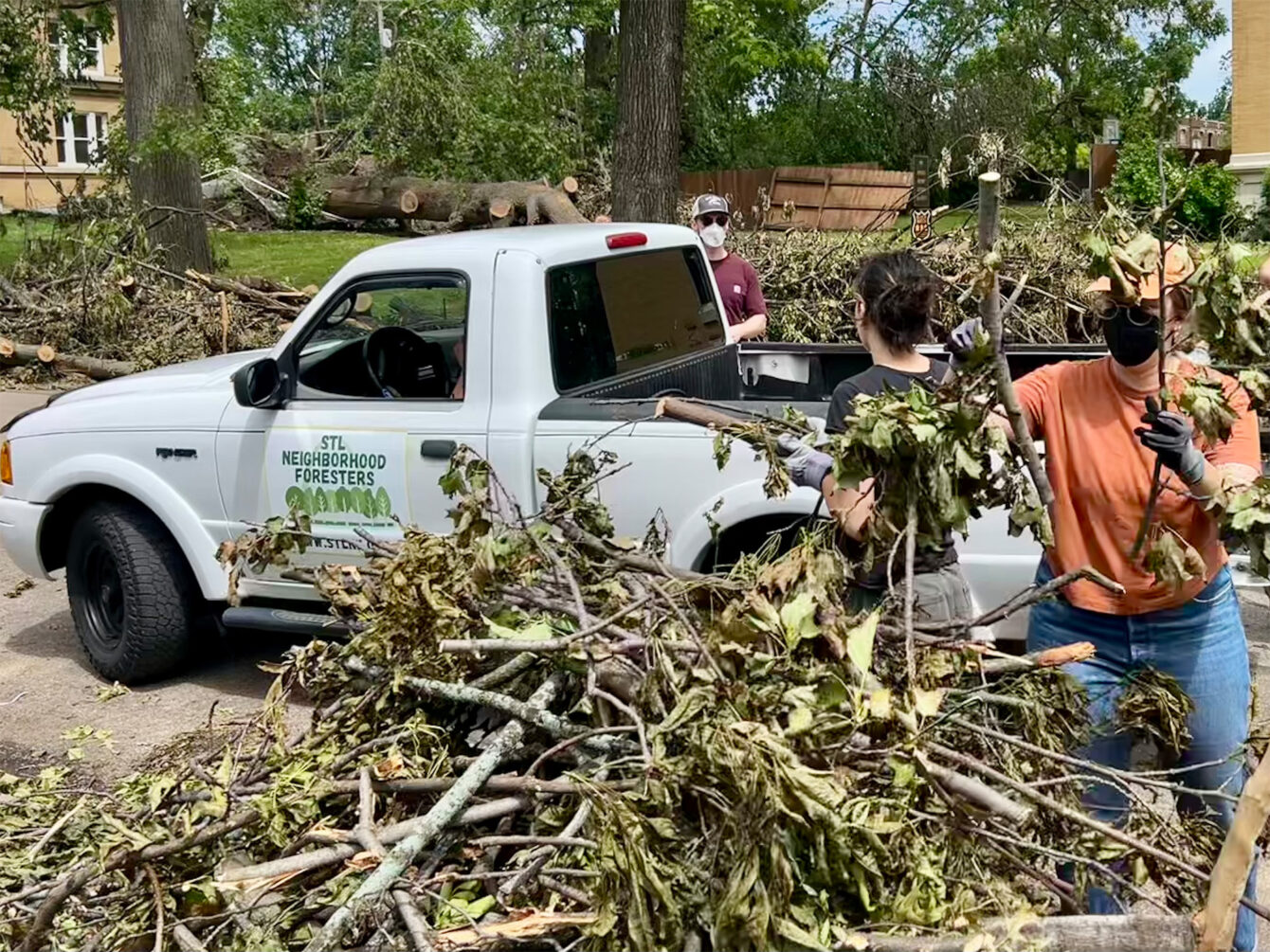
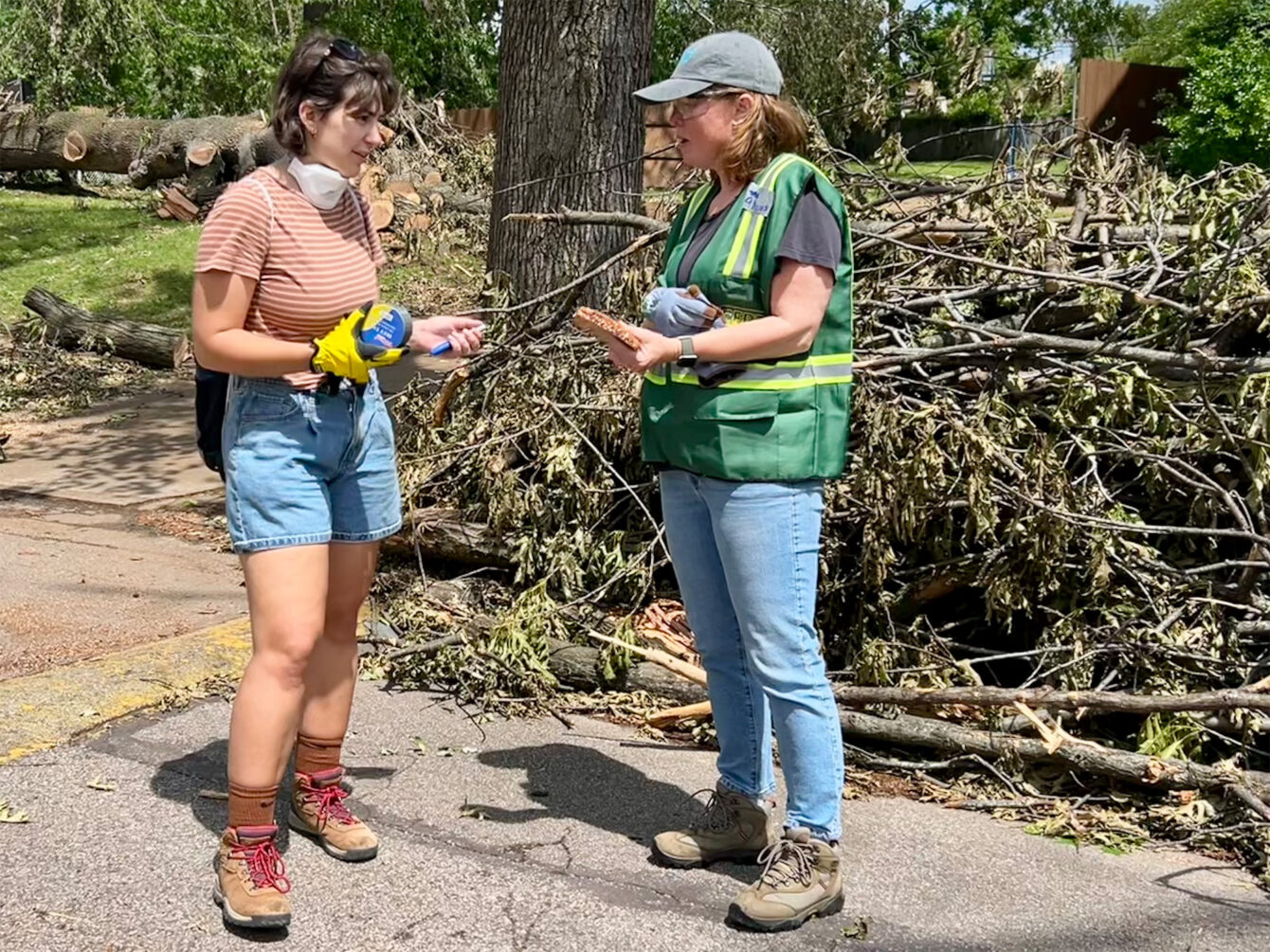
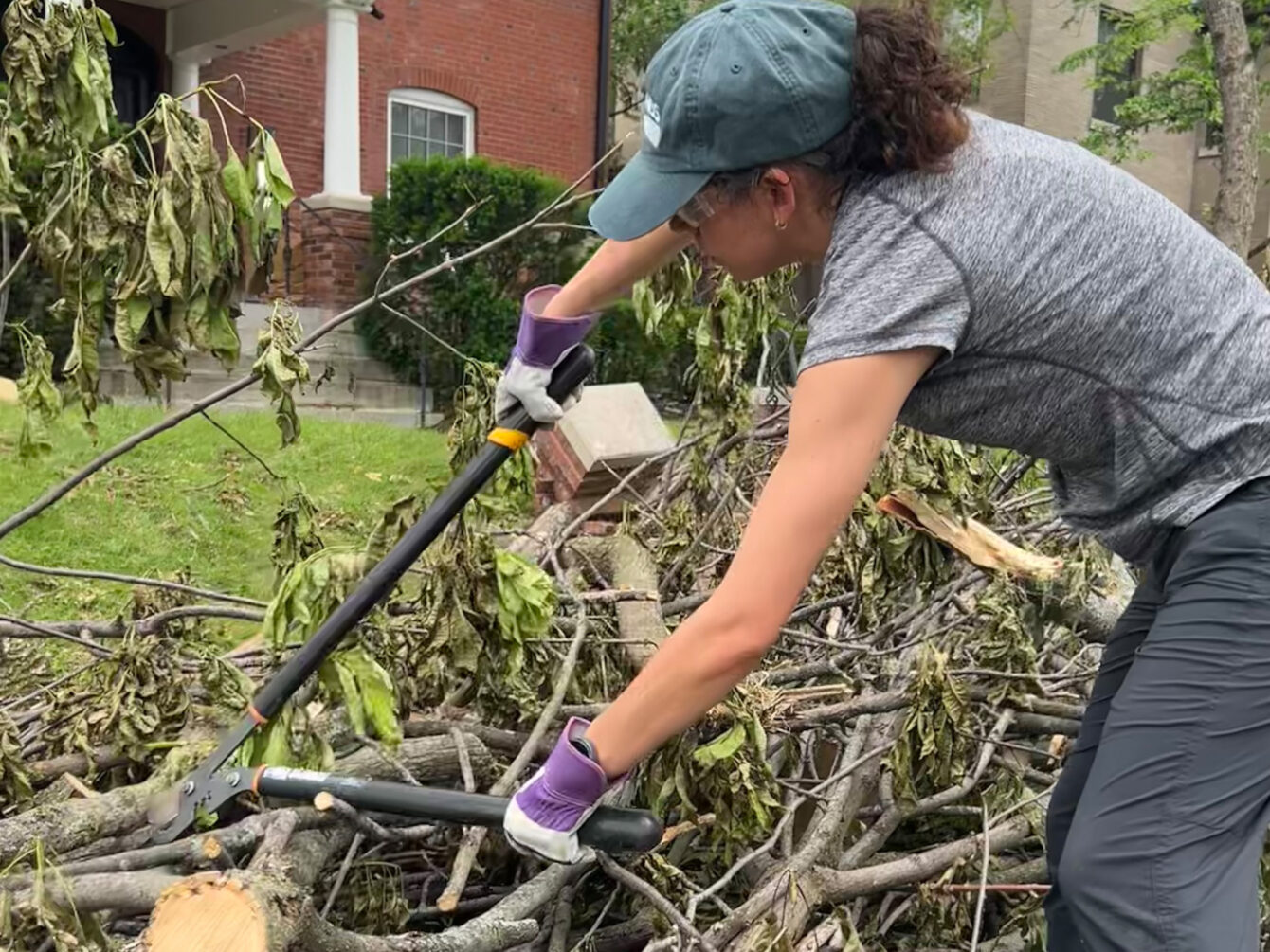
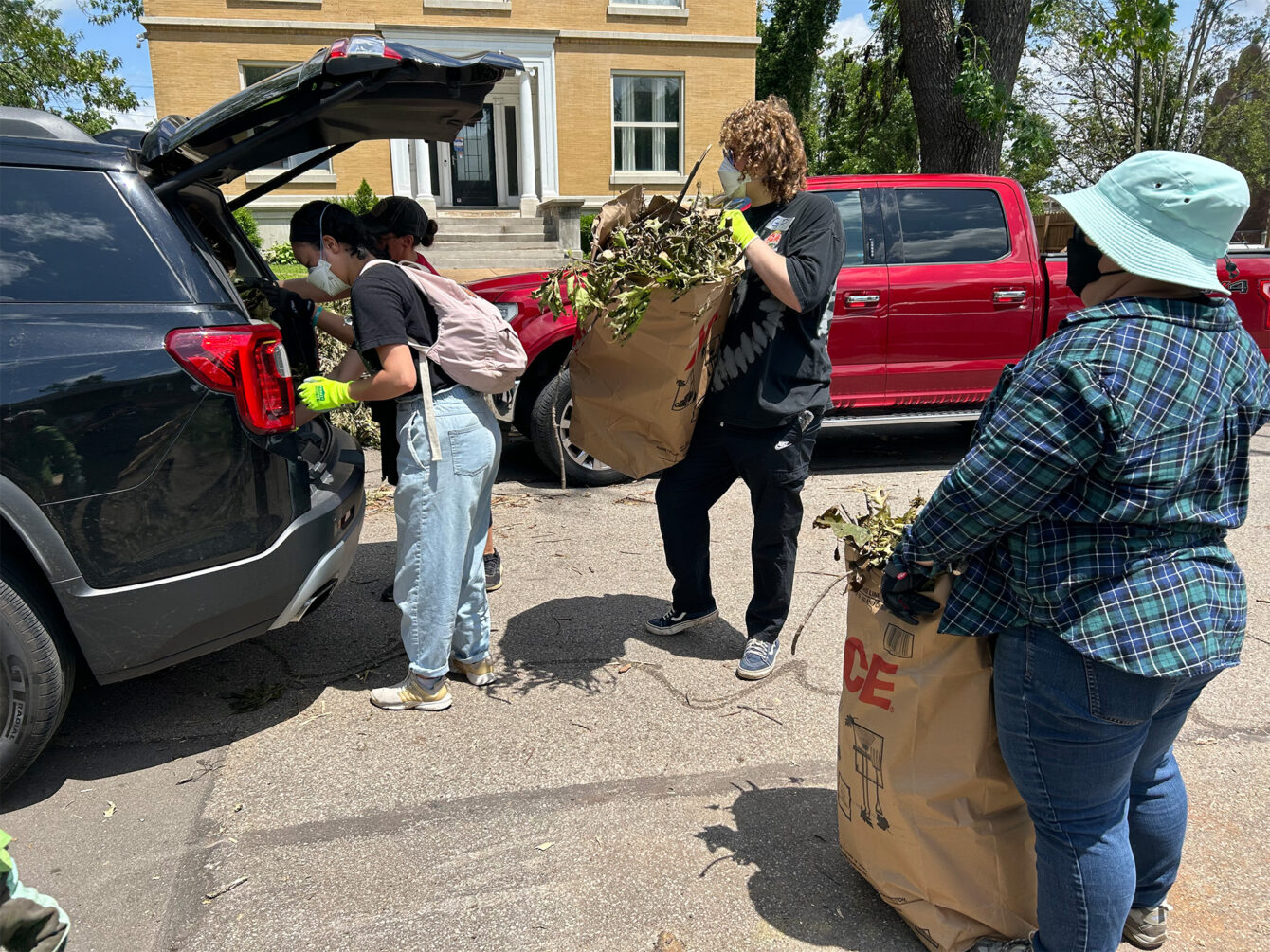
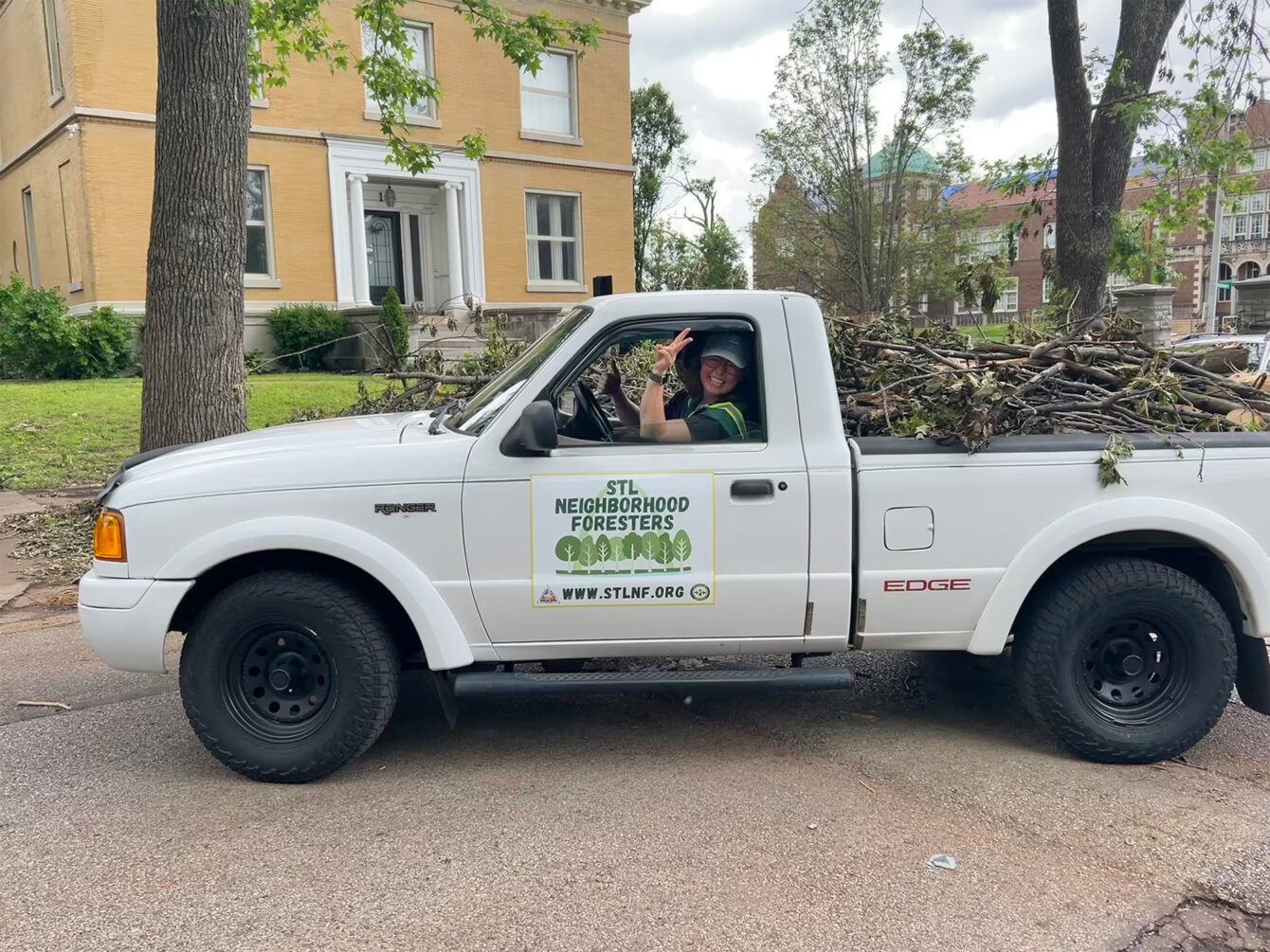
As the St. Louis area comes together in the aftermath of the storm, those looking to support recovery efforts can find opportunities through the following resources:
- WashU’s “In St. Louis, For St. Louis” initiative is regularly updating its website with opportunities for the university community to get involved.
- The City of St. Louis has launched a response and recovery site, offering a variety of ways to support broader community recovery efforts.
